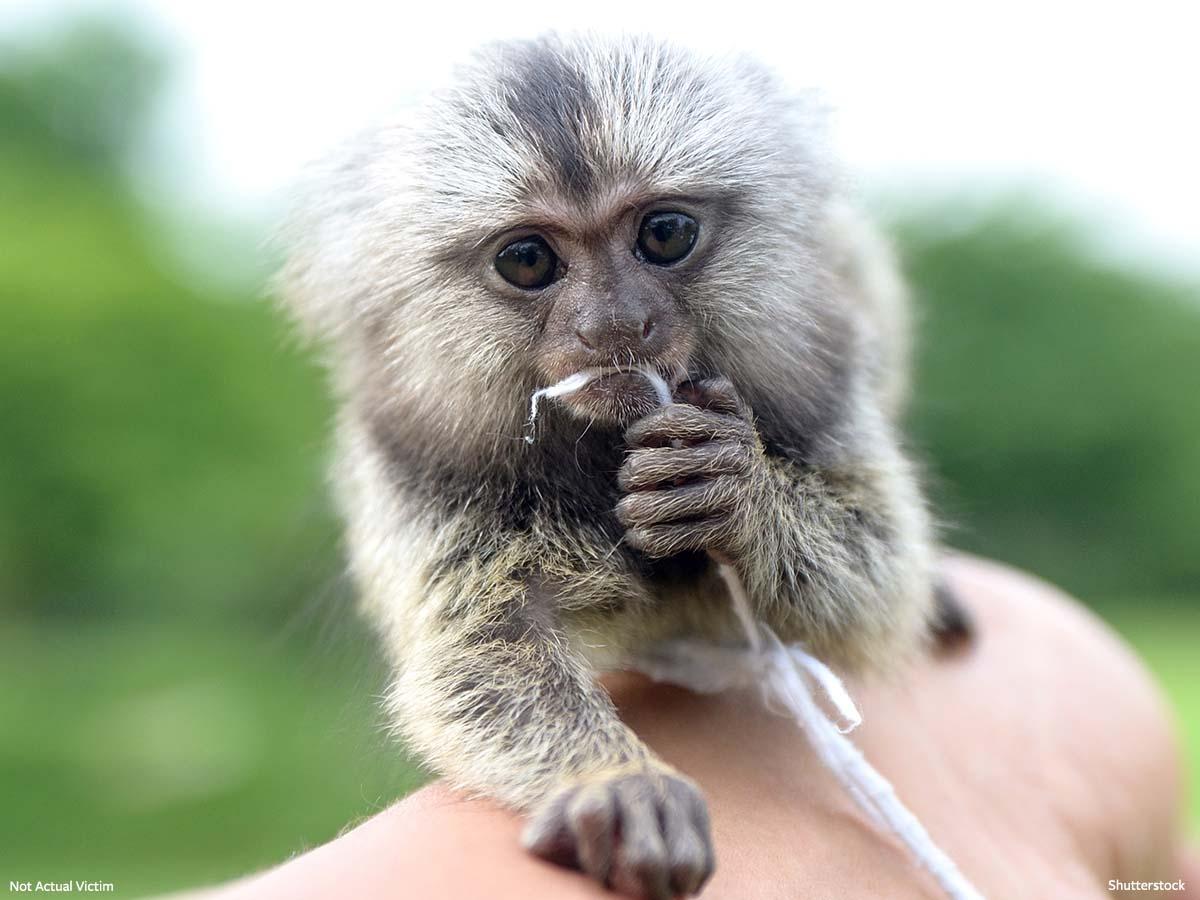MEDIA RELEASE: Plea Deal for Couple Who Left Baby Marmosets in Hot Car at Theme Park
SEVIERVILLE, Tenn. (June 2, 2022) – In Defense of Animals, the international animal protection organization that operates Hope Animal Sanctuary and the Justice for Animals Campaign in Mississippi, is pleased that the case involving a couple charged with animal cruelty after leaving two baby marmosets in their hot vehicle while they enjoyed a theme park (which resulted in the death of one) has finally been resolved.
More than 12,000 people signed In Defense of Animals’ letter to Assistant District Attorney for the Fourth Judicial District Ron C. Newcomb seeking the conviction and maximum sentencing for the couple.
On May 27, Nova and Paul Brettell accepted a plea deal, and were fined $500. They also had to forfeit the surviving marmoset, and have been banned from keeping animals for 10 years. They will also need to attend an animal treatment program to learn proper animal care, and have been placed on 35% supervised probation for 11 months and 29 days.
On June 23, 2021, the Sevierville Police Department were called to the Soaky Mountain Waterpark after management was alerted that two baby monkeys were in a vehicle in the parking area. Tragically the 9-week-old marmoset in the vehicle was already dead. The 5-week-old was hanging on by a thread and was rushed to the Appalachian Animal Hospital, in Morristown, Tenn., nearly 40 miles away. The survivor was treated for severe dehydration. At the time of the crime the outdoor temperature was 82 degrees. It is probable that the interior of the vehicle at that time was as high as 120 degrees.
The detectives of the Sevierville Police Department took this case so seriously that they did not wait for the owners of the vehicle to be indicted and proceeded with a charge of § 39-14-212 Aggravated cruelty to animals (a Class E felony) for the death of the 9-week-old primate and a charge of §39-14-202 Cruelty to animals (a Class A misdemeanor) for the 5-week-old who miraculously survived. A Class E felony carries a penalty of one to six years of incarceration and or a fine of up to $3,000. A Class A misdemeanor carries up to 11 months and 29 days of incarceration and/or a $2,500 fine.
It was not reported how long the Brettell couple had been traveling or if the marmosets had traveled with them from their home.
In Defense of Animals has long advocated against keeping wild animals in captivity. Primates are especially unsuited to captivity and do not fully adapt. They suffer the trauma of separation from their mothers, have specific dietary and emotional needs often resulting in their poor health and expressions of discontent that often lead to unpredictable behavior and aggression. Thousands of primates are kept as pets and many thousands are passed on to sanctuaries which are already overburdened with animals in need.
Wild animals, including primates bred in captivity, can only thrive in their natural environments. Animals kept as pets or in zoo exhibits should be relocated to accredited sanctuaries, and when possible, returned to their wild homes where they can live as nature intended.
“This heartbreaking incident is yet another reminder that primates should never be kept as ‘pets,’” said Doll Stanley, In Defense of Animals’ Justice for Animals’ Campaign Director. “We hope Congress will soon pass the Captive Primate Safety Act to ban private possession of these highly intelligent, social and wild animals and more efforts will be put toward stopping wildlife trafficking and the primate pet trade. These animals don’t belong in our homes, they belong in their native habitats.”
Contact: Doll Stanley, doll@idausa.org, (662) 809-4483
In Defense of Animals is an international animal protection organization based in Marin County, California, with over 250,000 supporters and a 39-year history of defending animals, their advocates, and the environment through education and campaigns, as well as hands-on rescue facilities in India, South Korea, and rural Mississippi. www.idausa.org
### ENDS ###


